This Occupational Standard for the Aviation Electrical / Electronic / Instrument Component Technician covers the tasks performed in the inspection, troubleshooting, repair, overhaul and testing of electrical, electronic and instrument components in a shop environment.
Each block of activity is introduced by a description of the basic knowledge and skills required to perform the specific tasks. Also, each area of specialization has described the maintenance of specific types of units.
It is expected that technicians will be familiar with all safety procedures and regulations affecting the work they perform.
Work ethics play a critical role in the work performed. Communication skills are exceedingly more important than ever and are addressed in a separate block. It is understood that some skills will be acquired on the job such as type-specific repair procedures.
Certification Requirements
To qualify for certification with CCAA, the applicant must possess the necessary knowledge and skills and have acquired a minimum of thirty-six (36) months in the occupation or a diploma in Avionics Maintenance from a CCAA accredited training organization or recognized equivalent and twenty-four (24) months experience on the job. The tasks in the logbook were made as generic as possible to accommodate the largest amount of work environments and equipment / tools but do not necessarily cover all tasks performed by individuals.
This occupation has three (3) distinct disciplines. An applicant can be certified in one or more disciplines if the individual meets the requirements for those disciplines. They are as follows:
- Electrical Components: The applicant must meet all mandatory sub-tasks in Blocks A and B and 50% or more of the sub-tasks found in at least two (2) of the three (3) systems sub-group.
- Electronic Components: The applicant must meet all mandatory sub-tasks in Blocks A, B and C and 50% or more of the sub-tasks found in at least three (3) of the six (6) systems sub-group.
- Aviation Instrument Components: The applicant must meet all mandatory sub-tasks in Blocks A and B and 50% or more of the sub-tasks found in at least three (3) of the five (5) systems sub-group.
Tasks Common to Most Aviation Electrical / Electronic / Instrument Component Technicians
(note that sub-tasks for each task are not shown below)
Block A — Safety
Task 1 – Demonstrates Safe Working Practices and Techniques
Block B — Communication and Basic Tasks
Task 2 – Communication and Ethics
Task 3 – Basic Tasks
Block C — Electrical Components
Task 4 – Maintain Power Generation and Control Systems Components as per Component Maintenance Manual
Task 5 – Maintain Environmental Control System Components as per Component Maintenance Manual
Task 6 – Maintain Electro-Mechanical Components as per Component Maintenance Manual
Block D — Electronic Components
Task 7 – Maintain Communication System Components as per Component Maintenance Manual
Task 8 – Maintain Navigation System Components as per Component Maintenance Manual
Task 9 – Maintain Power Generation and Controls Systems Components as per Component Maintenance Manual
Task 10 – Maintain Flight Control and Auto-Flight System Components as per Component Maintenance Manual
Task 11 – Maintain Miscellaneous System Components as per Component Maintenance Manual
Task 12 – Maintain Data Acquisition and Recording Systems Components
Block E — Instrument Components
Task 13 – Maintain Pitot / Static Components as per Component Maintenance Manual
Task 14 – Maintain Dynamic Aircraft Instrument Components as per Component Maintenance Manual
Task 15 – Maintain Navigation Instrument Components as per Component Maintenance Manual
Task 16 – Maintain Gyroscopic Instrument Components as per Component Maintenance Manual
Task 17 – Maintain Miscellaneous Instrument Components as per Component Maintenance Manual
